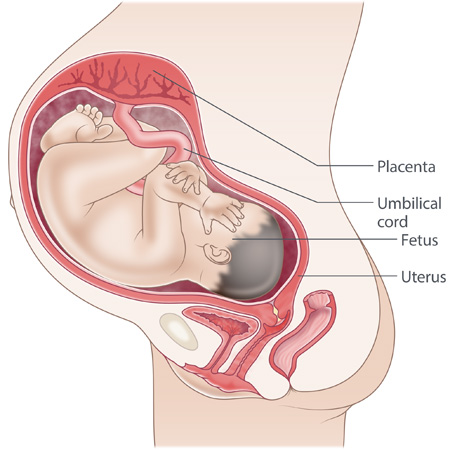
Week 38 of Pregnancy: Preparing for the Big Day
As you approach the end of your pregnancy journey, you may be feeling a mix of excitement and anticipation. Week 38 marks a significant milestone, as your baby is now considered full-term and ready to enter the world. This week is all about preparing for labor and delivery, both physically and emotionally.
Your Baby’s Development
At 38 weeks, your baby weighs approximately 6.5 pounds (2.9 kilograms) and measures about 19.5 inches (49.5 centimeters) from head to toe. Their organs are fully developed, and they are gaining fat and vernix caseosa, a waxy substance that protects their skin.
Your baby’s movements may become less frequent as they run out of space in the uterus. However, you should still feel them regularly. If you notice a significant decrease in movement, contact your healthcare provider.
Your Body’s Changes
As your due date approaches, your body undergoes several changes to prepare for labor and delivery:
- Cervical ripening: The cervix, the opening to the uterus, begins to soften and dilate.
- Increased vaginal discharge: You may experience an increase in clear or slightly bloody discharge, known as the "bloody show."
- Braxton Hicks contractions: These practice contractions become more frequent and intense.
- Pelvic pressure: Your baby’s head descends into the pelvis, putting pressure on your bladder and rectum.
- Emotional changes: You may experience a range of emotions, including excitement, anxiety, and nesting.
Preparing for Labor and Delivery
Physical Preparation:
- Stay active: Walking, swimming, and light exercise can help prepare your body for labor.
- Practice relaxation techniques: Deep breathing, meditation, and yoga can help reduce stress and promote relaxation.
- Create a birth plan: Discuss your preferences for labor and delivery with your healthcare provider.
- Pack your hospital bag: Include essential items such as comfortable clothing, toiletries, and a change of clothes for your baby.
Emotional Preparation:
- Talk to your partner or support person: Share your feelings and concerns, and discuss your expectations for labor and delivery.
- Attend childbirth classes: These classes can provide valuable information and support.
- Visualize a positive birth experience: Imagine yourself giving birth calmly and confidently.
- Trust your body: Your body is capable of giving birth. Trust in its ability and listen to its cues.
Signs of Labor
Labor typically begins with one or more of the following signs:
- Regular contractions: Contractions that occur at regular intervals and gradually increase in intensity and duration.
- Water breaking: A sudden gush or trickle of amniotic fluid.
- Bloody show: A discharge of blood-tinged mucus.
- Back pain: Persistent pain in the lower back.
When to Call Your Healthcare Provider
Call your healthcare provider immediately if you experience any of the following:
- Contractions that are less than 5 minutes apart and lasting for more than 1 minute each.
- Water breaking, especially if it is greenish or foul-smelling.
- Heavy vaginal bleeding.
- Severe abdominal pain or back pain.
- Decreased fetal movement.
Conclusion
Week 38 of pregnancy is a time of both anticipation and preparation. By understanding your baby’s development, your body’s changes, and the signs of labor, you can empower yourself for a positive and fulfilling birth experience. Remember to stay calm, trust your body, and seek support from your loved ones and healthcare provider. The journey to motherhood is about to begin!